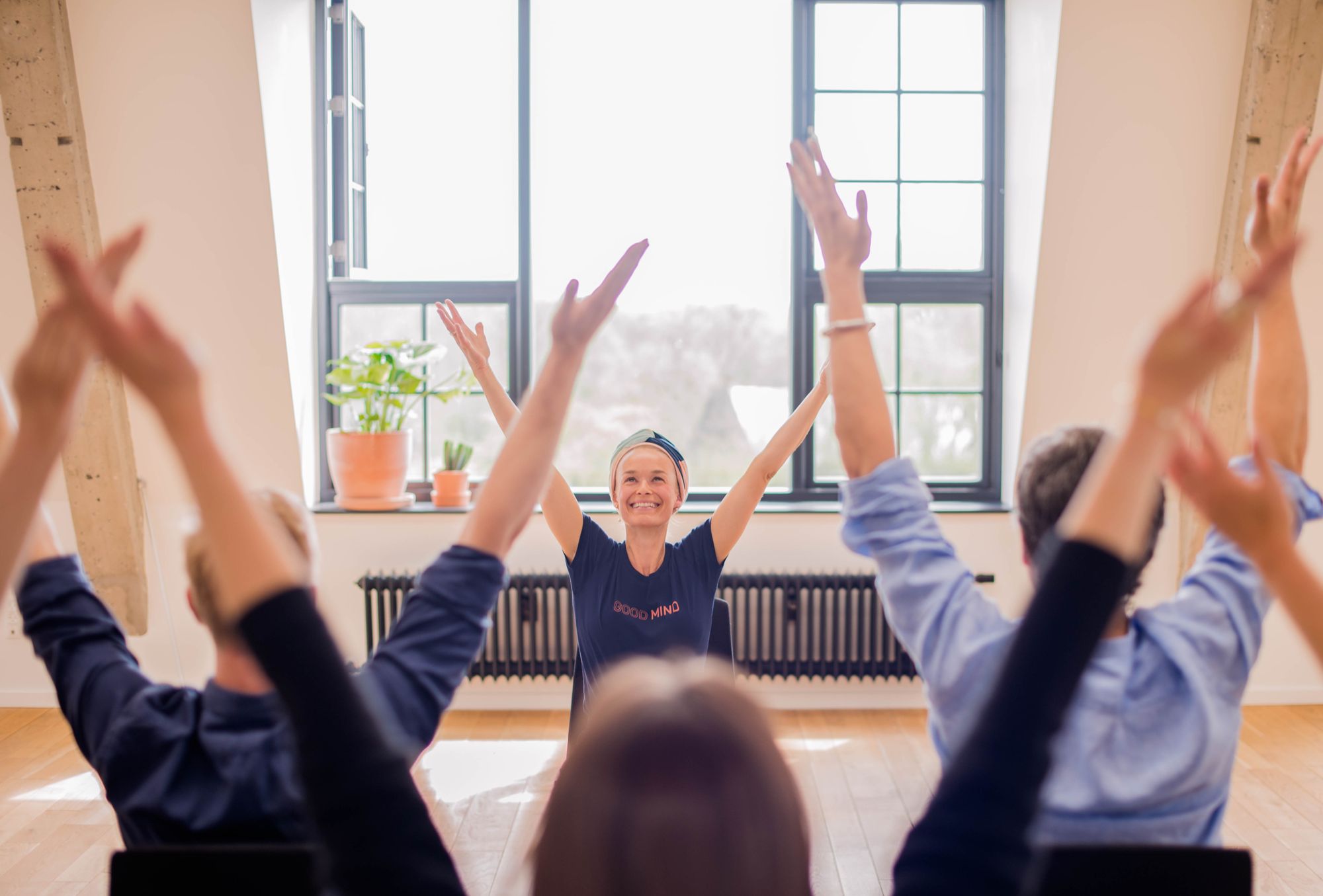Back to the Future (of offices)

“I guess you guys aren’t ready for that yet. But your kids are gonna love it.” - Marty McFly, Back to the Future (1985).
You can really sense hope and optimism in the Danish society at the moment, and that’s something that we in Good Monday experience on a daily basis. Offices are opening, employees are returning (with precautions), and luckily, these things still look to only go in the right direction. But what does it even mean to be back at the office? What we do know is that it’s nothing near what it was before. In a very short period of time, everyone has, unconsciously, taken some huge steps towards what we believe is the future of offices.
The most obvious differences are the ones that have to do with safety and hygiene. Those are the most important things right now, and we will undoubtedly take at least some of them with us into the future. But in parallel with the practical, new precautions, and guidelines something else is also going on. The development of how we understand and use the expression ‘going to work’.
We no longer just need to be ‘remote-friendly - we need to be ‘remote-first.
As more or less everyone has experienced during the past month and a half, it’s actually possible to go to work without physically checking in at the office to show your boss that you’re present. You’re able to work from home or from another country if that’s what suits you. But it takes a transformation of the workplaces to rethink the way offices are run. We no longer just need to be remote-friendly: we need to be remote-first.
This means that all employees in a company should have the same opportunities and advantages, no matter where they are located. It’s no less important to offer a good office experience to the employee who decided that working from the home office two days a week is the best thing for him or her. That’s the type of constellation that will be completely normal and acceptable in the future.
If it doesn't work remote, then it won't work at all
At Good Monday, we’re currently experiencing a huge demand for online yoga classes. We only expect that demand to rise - also when more people are back at the offices. Because why exclude the employees who could suddenly join in on things like yoga during the crisis? If these employees are put first, then everyone can participate. The same should be the case when beers are opened and drinks are being mixed at the Copenhagen office - then you say cheers to the team in London and the people who decided to spend the day at the home office.
Every employee should have access to the most basic perks. If it’s not remote-first, it shouldn’t be there at all.
The examples above are things that are relatively straightforward to execute, not least because of the forced, digital training we’re all going through at the moment. But how do we make sure that stuff like lunch, coffee, and snacks become remote-first? Those are some of the challenges we’re right now working hard to come up with the best solutions for. Of course, every employee should have access to the most basic perks. If it’s not remote-first, it shouldn’t be there at all.
Our managers actually trust us
All this talk about remote-first can probably seem a bit crazy, and some might even think that it’s not necessary to think like that. Because aren’t culture and social relations some of the most important parts of running a good and healthy company? Yes, they are. We don’t question that at all. Quite the opposite actually. One of the things people (including ourselves) have been looking forward to the most or still are looking forward to is to be reunited with our colleagues. To be able to spar with each other and laugh with each other. The feeling of reunion is amazing but we’ve also found out that it’s not necessary to be together every single day.
Actually, we found out that working from home can be pretty neat and practical. We’ve found out that our boss actually trusts us - also when they're not able to keep an eye on us and make sure we're at our desks at 9 am. The crisis has taken internal trust within most companies to a whole new level.
When you all of a sudden have the possibility of defining your own workspace and doing your work from where it makes sense for you, it creates some brand new opportunities in terms of balancing the job and the private life. Yes, the infamous work-life balance will instead be known as the life balance where everything just plays more naturally together. That’s how it should be, and that’s where we believe it’s going.


